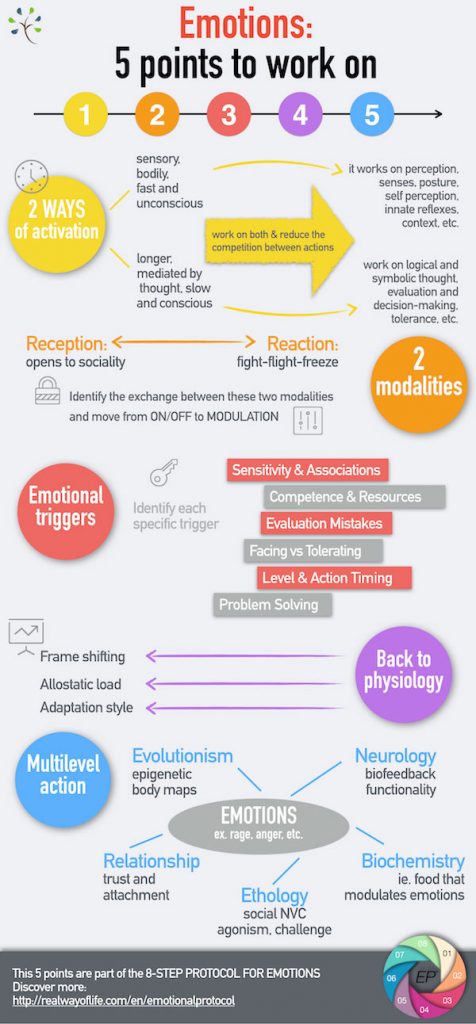
Are you out-of-touch with your emotions? Or do you feel a little too much, and consequently carry the world on your shoulders? Everyone has a different level of natural empathy and emotional intuitiveness, but we all need some help to regulate our emotions—whether we are aware of them or not.
Science can help us to normalise our natural emotional responses, and make them healthier. The team at Real Way of Life are frequently asked about modern science and how it can be applied to the management of emotional problems. They’ve put together this handy infographic, explaining how five key points can guide us in caring for our own emotional health.
-
Two ways of activation: Whether we naturally respond to things by thinking them through, or acting them out. This leads to our emotional response.
-
Modalities: Our tendency to immerse ourselves in sociality, or live in a fight, flight or freeze manner.
-
Emotional triggers: What causes our emotions and corresponding actions.
-
Physiology: The effect of constant stress on the body, our genetic code, how we internally respond to stimuli (e.g. exercise)
-
Multilevel action: Understanding that different factors influence our emotional health and managing each accordingly. (e.g. Biological make up, relationships, social tendencies, diet and health, neurological factors).
Developed through their years of experience and research, each point shows the spectrum of emotional tendencies, physiological responses and factors that influence and trigger our emotions.
Take a look at the infographic below, and consider where you fall on the scale of empathy and response. If you find yourself resonating with one in particular, do some more research, and try adjusting your mindset or behaviour to better moderate your emotions.

Do you want to learn to regulate your emotions? Would you like help to adjust your mindset and behaviours? Here’s what you need to do: contact Colleen on 0434 337 245 or Duncan on 0434 331 243 for a FREE 10-minute phone consultation on how we can best help you, or press book now.
Leave a Reply